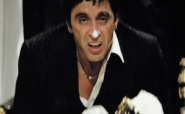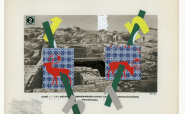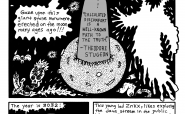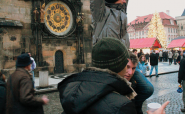| Umělec 1999/1 >> Yan-Pei Ming | Просмотр всех номеров | ||||||||||||
|
|||||||||||||
Yan-Pei MingUmělec 1999/101.01.1999 Vít Havránek | reviews | en cs |
|||||||||||||
|
In France, painting has been for a long time experiencing insecurity. If an artist actually manages to enter the context of contemporary art, one gets a feeling that it happens so out of curatorial need to fill up the wall, or to spice up the installation-conceptual character of current exhibitions by throwing in one or two canvases (e.g. the Le Consortium exhibition at Centre Pompidou). In this for painting so critical time, out of nowhere appeared a painter who managed to get among the contemporary ones and even has big solo shows. One of his advantages include his Chinese origin bringing automatically a different optics for a French intellectual.
Indeed, Ming combines several very interesting elements. His paintings look flat and almost boring in their black-and-white reproductions but in reality they are huge (2-5 meters) boasting with wonderful energy of broad expressive handwriting. Just as austere as his gray-black-and-white color combination (he actually painted one red cycle of Mao Zedong) are the themes he chooses, painting either enlarged human faces or landscapes. The cycle of humans, imaginary contemporary faces (or unidentified victims of accidents and crimes), reflects his fascination by the mass (those Chinese!), by an individual yet perfectly replaceable fate, a unique depth of a face and its life. His International Landscapes share a similar background - large horizons of an imaginary landscape, completely lacking traces of their typical features or inner character, repeated, absolutely uninteresting. Ming’s paintings are in their core very pathetic and existential, surprisingly anchored in modernist tradition of abstract expressionism, Giacometti, Bacon. It is when his works are compared with them that they convince us of their strength. Ming is a peculiar phenomenon: a painter outside the issues of his time. It is paradoxical that he is highly appreciated by his peers and is significant for current situation in contrast with more contemporary artist who are making an attempt at the same but with lesser success.
01.01.1999
Рекомендуемые статьи
|
|||||||||||||








Комментарии
Статья не была прокомментированаДобавить новый комментарий